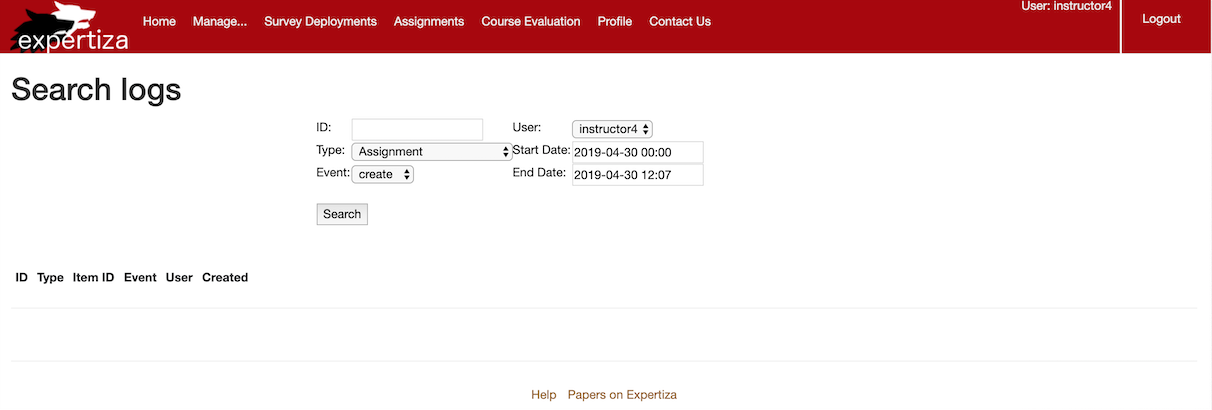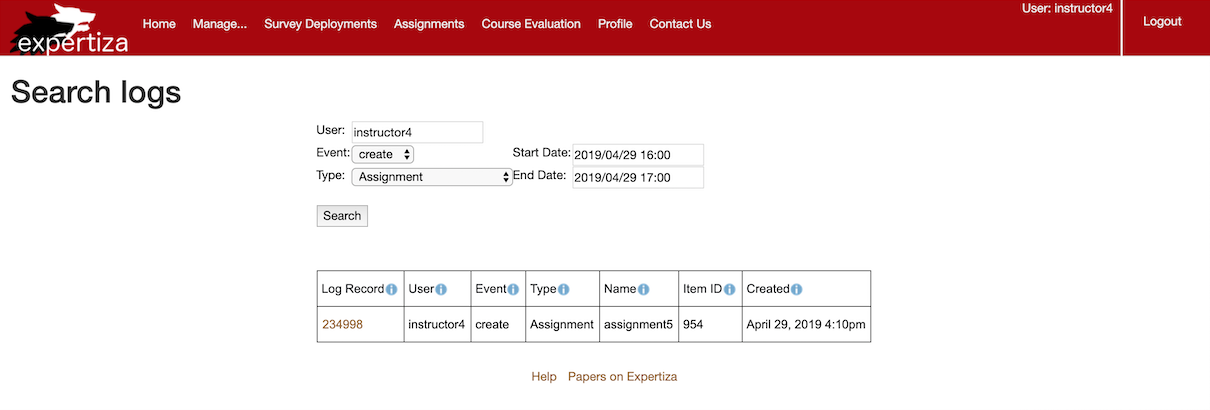Independent Study Spring 2019/Logging
Abstract
This independent study, Support for logging & data-mining peer-assessment behavior in Spring 2019, is about logging, which is convenient for the administrator or instructor to gather valuable usage of Expertiza from students and do some studies. This study can be divided into 2 parts, refactor of views/versions page and setup of ELK Stack.
views/versions
The previous version of views/versions page doesn't work well, so we need some refactoring to make it better.
- Before

- After

What needs to be done?
- current UI needs to record the username.
- All fields of event records need to have info buttons describing what they do.
- Search form needs to be changed.
- More models need to be tracked by PaperTrail.
- The order of log attributes needs to be changed.
- We need to add a column for the title (assignment name, course name, rubric name, etc.)
- User ID should be the username of the user, not the user’s row number in the users table.
- Figure out a way to show data in local timezone, but the time stored in database is in UTC by default.
Files Modified
- application_controller.rb
- versions_controller.rb
- versions/_pagination.html.erb
- versions/search.html.erb
- versions/show.html.erb
New gem, local_time
ELK Stack
Setup Steps
These steps are based on macOS, if you are using other OS, there are more information on Guide.
Download
First, we need to download Elasticsearch, Kibana, Logstash, and Filebeat.
- Elasticsearch is a distributed, RESTful search and analytics engine capable of solving a growing number of use cases. As the heart of the Elastic Stack, it centrally stores your data so you can discover the expected and uncover the unexpected.
- Kibana lets you visualize your Elasticsearch data and navigate the Elastic Stack.
- Logstash ingests data from a multitude of sources simultaneously, transforms it, and then sends it to your favorite “stash.”
- Filebeat is one of Beats which send data from hundreds or thousands of machines and systems to Logstash or Elasticsearch.